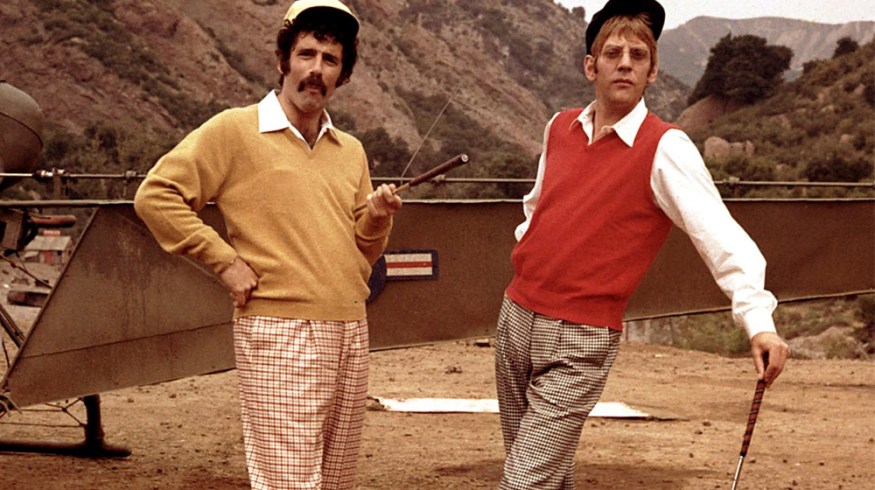
When a Serious Subject Is a Laughing Matter
Comedies often deal with real-life circumstances. Here are a few comedic films that explore dark subject matter.
It wasn’t just Mary Poppins who knew that a spoonful of sugar made the medicine go down. Even in the 13th century, physicians used humor as a distraction during surgery to alleviate pain. Simply put, crappy stuff is made less crappy if you can laugh about it.
But are there any subjects in film that are simply too hot for humor? Is everything fair game, and what are the risks and rewards when filmmakers venture into those often dark, uncomfortable places for comedy?
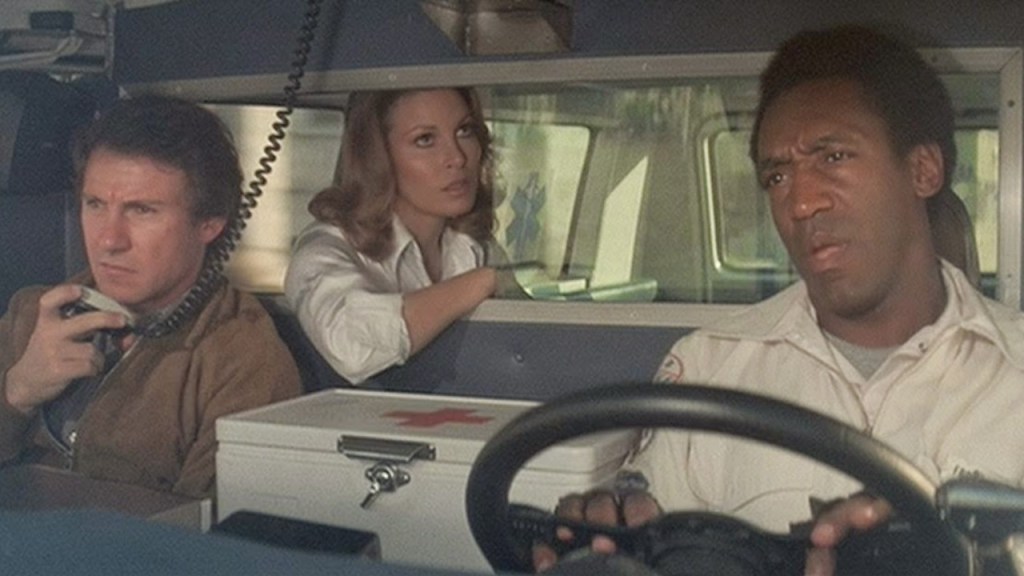
I don’t have to tell you people times are tough. You read the papers. The country’s going to hell. Now, you take inflation, recession, welfare. There’s nothing we can do about that. But, thanks to muggings, malnutrition, assassination, and disease, we got a chance to make a buck.
– Scene from the movie Mother, Jugs and Speed (1976)
That rallying cry opens the 1976 film Mother, Jugs and Speed, an ambulance comedy that manages to pack in a myriad of touchy subject matter: drug addiction, murder, suicide, racism, sexism, body shaming, rape, the plight of war veterans, and even a pregnant woman bleeding to death. In other words, not necessarily what you would consider a laugh riot.
The film is directed by Peter Yates, written by Tom Mankiewicz, stars Raquel Welch, Harvey Keitel, and a pre-problematic Bill Cosby. In fairness, even though it had a stellar pedigree at the time of its release, the film was not considered a great comedy. Even so, it dared to use humor to expose serious subjects and themes.
In general, the 1970s were a time when filmmaking pushed back against mainstream trends and explored counterculture fearlessly. A number of dramas, including Five Easy Pieces, The Godfather, Serpico, Dirty Harry, and Dog Day Afternoon, explored the unrest, lawlessness, and challenges to societal norms.
However, comedy may have pushed the envelope the most. Here are a few comedic films from that time and the dark themes they explored.
Harold and Maude
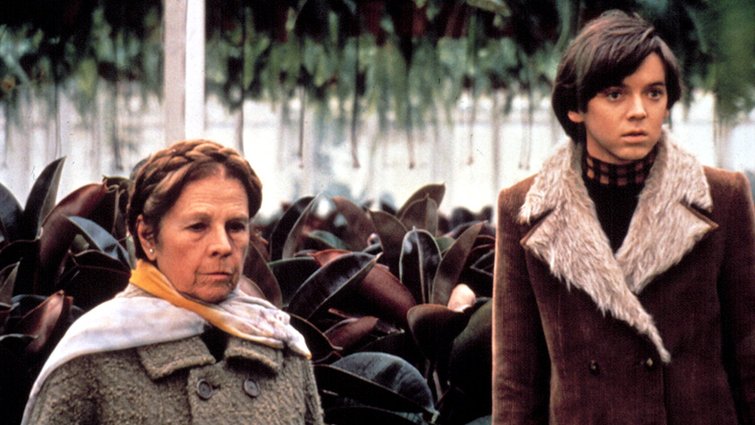
When Harold and Maude came out in 1971, it received mixed reviews, but today is considered a cult classic. The gallows humor revolves around the unexpected relationship of a depressed teenager and an eccentric older woman.
Harold has an obsession with death that’s manifested in many elaborate suicide vignettes aimed at getting the attention of his narcissistic mother. Despite her advanced age, Maude is carefree, joyfully reckless, and a lover of life. But her pleasure comes from immense pain.
Maude is a Holocaust survivor. A single shot reveals her tattoo during a tender scene between them after the best of days together. Harold sees it at the same time the audience does, and we now understand her completely. Her eloquent reaction to surviving hell was to embrace life.
The film explores depression, survival, and existential crisis in a way that’s both profoundly moving and harrowingly funny.
M*A*S*H
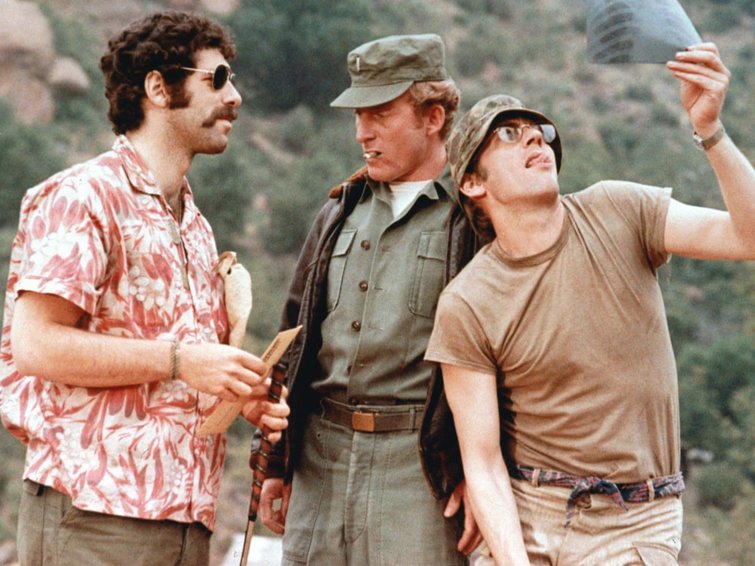
An irreverent comedy made during the Vietnam War, M*A*S*H is set two decades earlier during the Korean conflict and follows a mobile surgical hospital as they engage in sophomoric antics to keep sane as they endure the horrors of war.
At times gorier than a horror film, there’s no attempt to sugarcoat any of the brutality of combat or the psychological toll it takes on those experiencing it.
Filmed two years after the restrictive Hays code ended, it was one of the first films to criticize religion, depict a character contemplating suicide, mention homosexuality, or use blue language.
However, some of the laughter did come at the expense of a particular demographic. Through a 2022 lens, it’s hard to ignore the cruel misogyny found in this subversive anti-war comedy.
Blazing Saddles
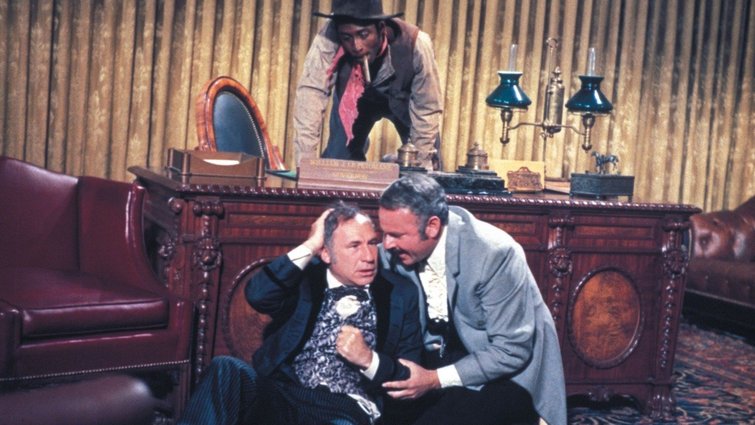
Blazing Saddles spares no one. Even a horse gets socked in the jaw. The plot follows a corrupt politician who plans to wreck a western town for his own financial gain by appointing a Black sheriff who promptly proves to be his most formidable opponent.
You don’t have to know yiddish to enjoy this film, but it helps. You do have to be able to laugh at racism with its jabs at racial slurs and stereotypes. But, that’s precisely the point.
The film is peppered with racial slurs and not just uttered by the bad guys but by the townsfolk. Richard Pryor was one of a team of writers that included Mel Brooks, Norman Steinberg, Alan Uger, and Andrew Bergman.
Pryor was adamant that the slur stays in the script to expose them. It’s important because although Black Bart (Cleavon Little) is the hero, he’s surrounded by racists. In the words of Bart’s sidekick, the Waco Kid (Gene Wilder), these townsfolk are “just simple farmers. These are people of the land. The common clay of the new West. You know—morons.”
It would be impossible to make a revolutionary farce about race relations without including the ugly side uncovered by laughter.
The Rocky Horror Picture Show
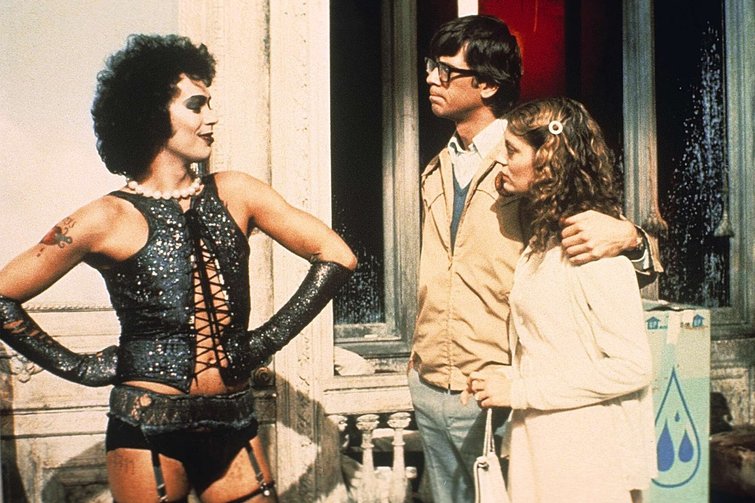
An epic science fiction musical parody, The Rocky Horror Picture Show is a roller coaster ride of sexual celebration and liberation. With an exemplary tale camp vibe similar to Reefer Madness, the film follows a straight-laced couple as they venture into a world of hedonism, while discovering hidden desires. Previously taboo subjects—homosexuality, bisexuality, and transsexuality—are front and center.
It almost feels quaint today to suggest this film qualifies as exploring dark or uncomfortable subject matter. Still, given the recent backlash on privacy rights, a film with such a lighthearted approach to alternative sexual expression feels downright radical.
Is Anything Actually Off Limits?
While the films in the seventies discussed the above-depicted drug addiction, depression, racism, horrors of war, alternative sexuality, and expression, among other subjects, it can be argued that there are some subjects that some people feel push the envelope too far and are too raw to be acceptable.
We found four sharp and funny films that deal with sensitive topics some might not think could be explored with humor: abortion, sexual abuse, mental illness, and cancer.
Abortion
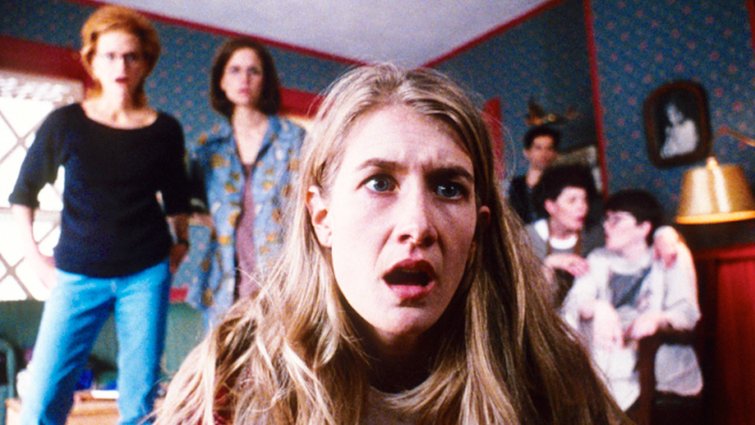
Citizen Ruth revolves around an irresponsible, drug-addicted, recently impregnated woman who finds herself in the middle of an abortion tug-of-war when both parties attempt to sway her to their respective sides.
This was Alexander Payne‘s directorial debut and he entered like a lion, not a lamb. Although abortion is the plot, fanaticism is the theme.
The dim-witted Ruth is used as a pawn by both sides, and their strategies are taken to an absurd level. Laura Dern, Swoozie Kurtz, and Mary Kay Place deliver stellar performances in this sharp take on the abortion debate.
Sexual Abuse
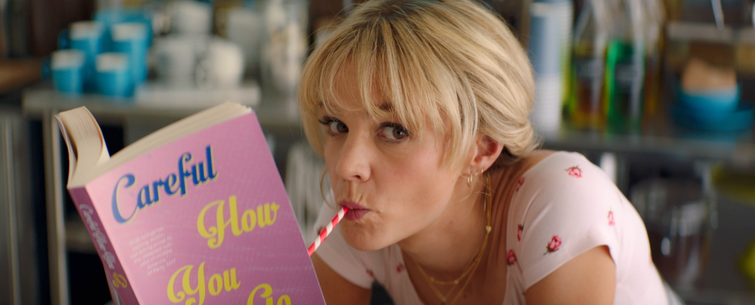
Promising Young Woman deals with rape and revenge. When you hear those words together, you either think of a grindhouse action film or a stark drama.
In fact, Emerald Fennell‘s film is categorized as a crime drama on IMDB, but its tone is so much more nuanced. There’s a sense of whimsy and recklessness from the main character as she plots revenge against the men that sexually traumatized her friend.
She wields her vengeance in a way that’s part baby spice, part Lizzie Borden, that brings a state of levity to her efforts. There’s nothing inherently funny in the plot, yet the joke is on the men who seemingly feel they are in complete control.
In the end, even when she loses, she wins.
Mental Illness
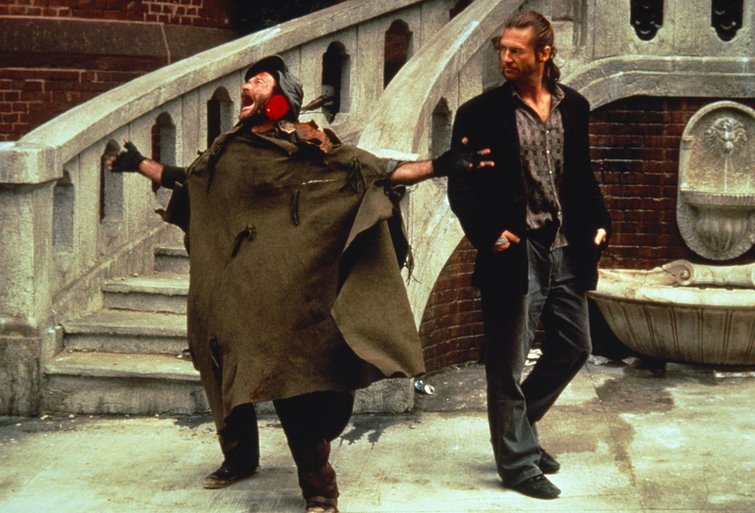
The Fisher King ticks a lot of boxes. Arrogant shock jock spews insensitive advice on air that leads to a murderous rampage. Despondent and suicidal, he crosses paths with a hallucinogenic homeless man and finds someone to save.
The film sways effortlessly between heart-wrenching and comedic, and never condescends to the pain and trauma the characters are experiencing. Mental illness isn’t treated as the brunt of a joke, but rather explored as the imprisoning weight that sometimes expresses itself as manic joy.
This is a wholly unique story with standout performances by Jeff Bridges and Robin Williams.
Cancer
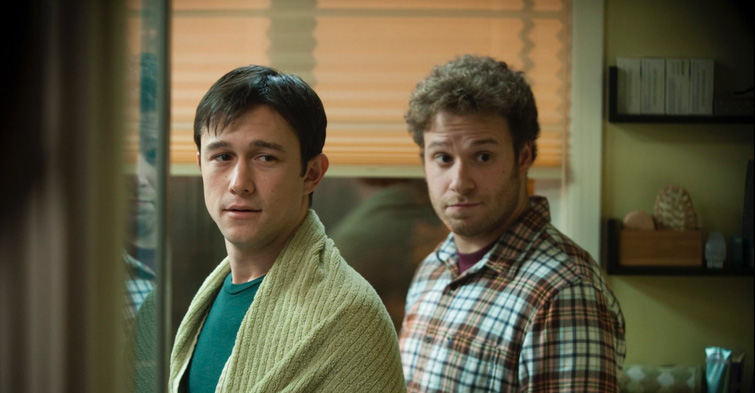
50/50 are the odds Joseph Gordon Levitt’s character has to live after a cancer diagnosis. It’s surprisingly upbeat given the grim subject. The film doesn’t try to put a false positive spin that everything will be all right with a can-do attitude or go the melodrama route of doom and gloom.
Instead, it focuses on how life doesn’t stop for cancer and that everything you’ve grappled with before this devastating diagnosis is still in your orbit. Relationships need to be navigated and sorted out, and new perspectives formed.
It’s a brutally honest exploration that’s emotionally gut-wrenching and hysterically funny, considering its subject matter.
Any Subject Can Be a Funny Subject
Finding a way to explore a challenging subject in a film is key, but so many films don’t get it right. As most comedians know, putting yourself on the line and being vulnerable takes enormous courage.
But, if you think Hitler can’t be joked about? Watch Charlie Chaplin‘s The Great Dictator, which used ridicule to warn the world to take him seriously.
For more filmmaking tips and advice, take a look at these articles:
- 5 Preparation Tips for Directing Your Next Commercial
- The Pros and Cons of 4 Popular Camera Rental Options
- 5 Documentary-Style Lenses for 5 Different Budgets
- Why Virtual Production Could Work for You
- Affordable Field Recorders for Filmmakers
Cover image via 20th Century Fox.





